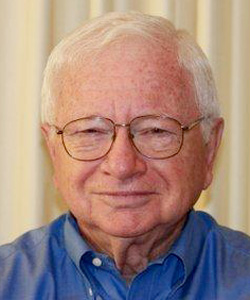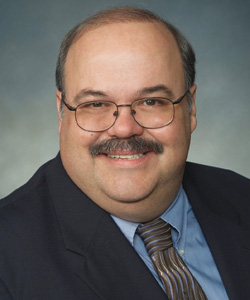
Howard Bellman
April 18, 2012 – If your practice involves mediation, chances are you’ve heard of Howard Bellman, a Madison lawyer whose mediation practice spans the globe. If you’d like to learn different mediation strategies to suit different cases, chances are Bellman can teach you.
Bellman, a solo practitioner and recipient of the 2003 Lifetime Achievement Award of the American College of Civil Trial Mediators, has worked in mediation since 1965.
He’ll use his expertise to present on mediation strategy at the State Bar of Wisconsin PINNACLE™ Litigation, Dispute Resolution, and Appellate Practice Institute, June 11-12, at the Chula Vista Resort in Wisconsin Dells.
Bellman was one of the first mediators in the United States to begin mediating outside of labor relations after leaving Wisconsin’s Employment Relations Commission in the 1970s. His practice now includes consulting governments and entities worldwide on developing mediation systems.
“When I first started, mediators were generally used in labor relations, but mediation is now a pretty conventional process and has spread far beyond labor,” Bellman said. “As such, it has become rich in the types of strategies that can be used when helping clients mediate different kinds of cases. I will explain some of the techniques that lawyers may not be aware of.”
In his presentation, “Fitting the Forum to the Fuss,” Bellman will use the benefit of experience in nearly every category of dispute – from labor relations and land use to environmental clean-up and international diplomacy – to deliver his message to lawyers.
“Sometimes lawyers have an experience with mediation and develop a sense that the same mediation strategy applies to all cases,” Bellman said. “What I want to explain is that mediation uses a number of techniques to suit the dispute.”
Those techniques relate closely to making forum choices based on the parties’ goals, and how to overcome obstacles in reaching settlements through negotiation or mediation.
Whether you are a lawyer interested in mediating disputes, or a lawyer who represents parties to mediation, Bellman’s experience will certainly add depth to your knowledge.

Jim Calloway
Stay ahead of the technology curve, practice advisor says
The changing technology and economics of law practice mean lawyers must adapt or risk falling behind, according to Jim Calloway, director of the Oklahoma Bar Association’s Management Assistance Program.
Calloway will deliver a key note presentation, “The Future of Law: Dark Clouds or Silver Linings,” at the Litigation, Dispute Resolution and Appellate Practice Institute.
“Those lawyers who don’t update and change their practices to address technology may see a dark cloud coming,” Calloway said. “On the other hand, there may be a silver lining to the future for those who embrace technology and use it to become more competitive.”
Technology tools can help lawyers and law firms address the challenges facing the profession, like increasing demand for more efficient and cost-effective service, Calloway says.
For instance, automation software can help law firms streamline tasks like document assembly. Automation, previously used in large firms through specialized practice management software, is now widely available to cut down the drafting time of creating repetitive documents and forms. Calloway says technology tools like this will keep lawyers competitive.
And staying competitive, Calloway says, has never been more important. Lawyers must compete for clients who are constantly seeking more cost-effective solutions in a lawyer-saturated market that includes nonlawyers selling do-it-yourself services, he says.
“People have more access to more information,” Calloway said. “It really requires us to pay attention and be more efficient in our business practices, incorporating modern technology.”
But investing time, money, and training resources on technology solutions is just one aspect of staying ahead of the curve. Implementing technology also requires an assessment of billing practices to reflect the change, and an assessment of what technology is replacing, like staff.
“If lawyers are going to streamline processes through technology, they should look at adjusting old billing models to address the investment and the efficiencies created,” Calloway said.
Calloway, who presents nationally on this topic, will give lawyers guidance to stay ahead of the technology curve and remain competitive in a down economy.
“Virtually every practicing lawyer sees the technology trends. But many aren’t aware of the right path to address them,” Calloway said. “I hope to give lawyers a roadmap of those areas that can make their businesses more efficient so they can remain successful in the future.”
Institute information and speakers
The State Bar of Wisconsin PINNACLE’s Litigation, Dispute Resolution & Appellate Practice Institute is a two-day event scheduled for June 11-12 at the Chula Vista Resort in Wisconsin Dells.
Speakers and presenters – most of them Wisconsin lawyers practicing in litigation, dispute resolution and appellate practice – will help lawyers gain knowledge in these areas while earning up to 11.5 CLE credits, 1.0 EPR credit.
For a full list of schedule speakers, topics, and events, visit the Institute’s webpage. Early Bird registration ends May 4, so don’t wait to register! Click here to register, call the State Bar at (800) 728-7788 or (608) 257-3838.
Other upcoming Institutes
What are institutes?
In 2011, State Bar of Wisconsin PINNACLE began producing several multi-day CLE institutes. The institutes, which replaced the annual convention format, enrich the learning and networking opportunities of attorneys in the same or related practice areas by delivering more in-depth programming to members in designated practice areas.
